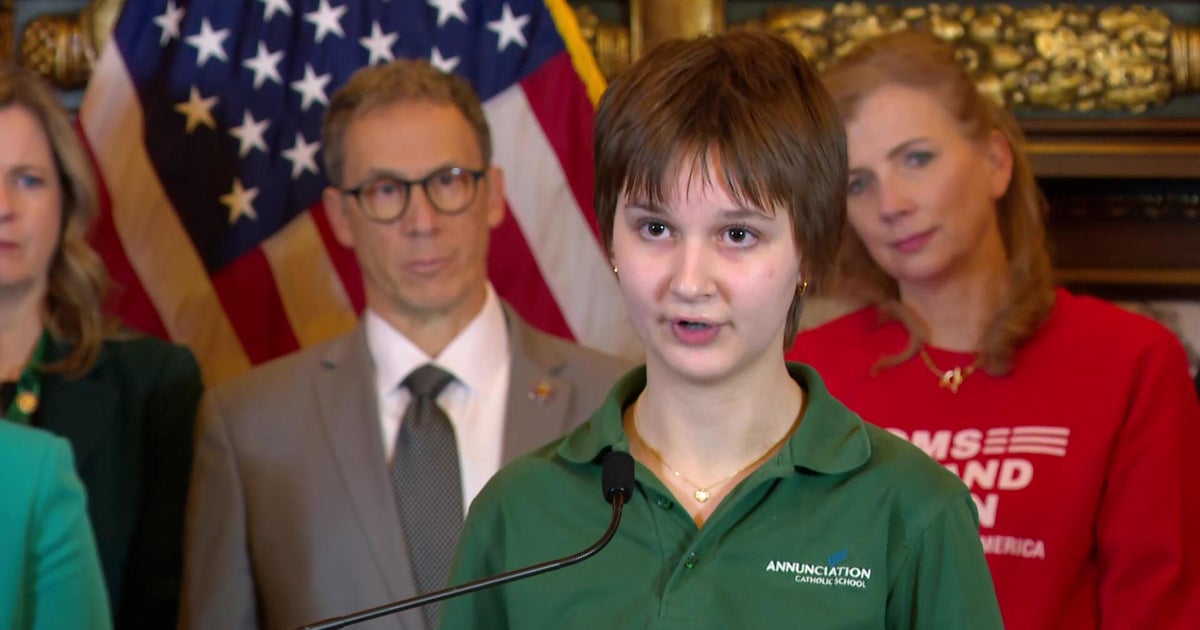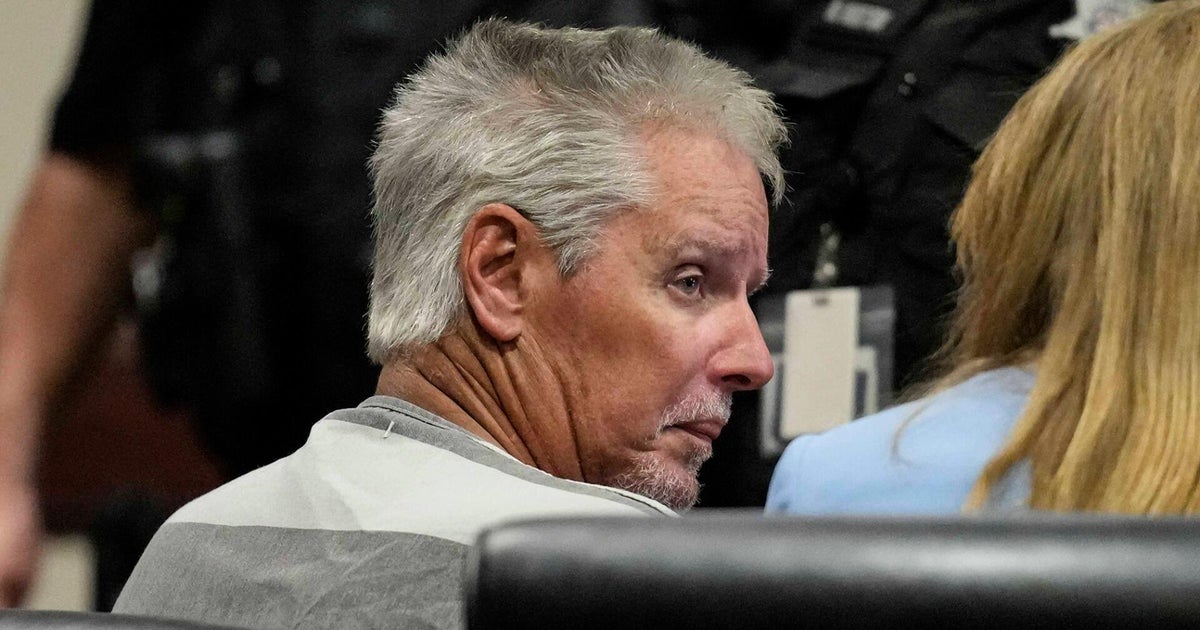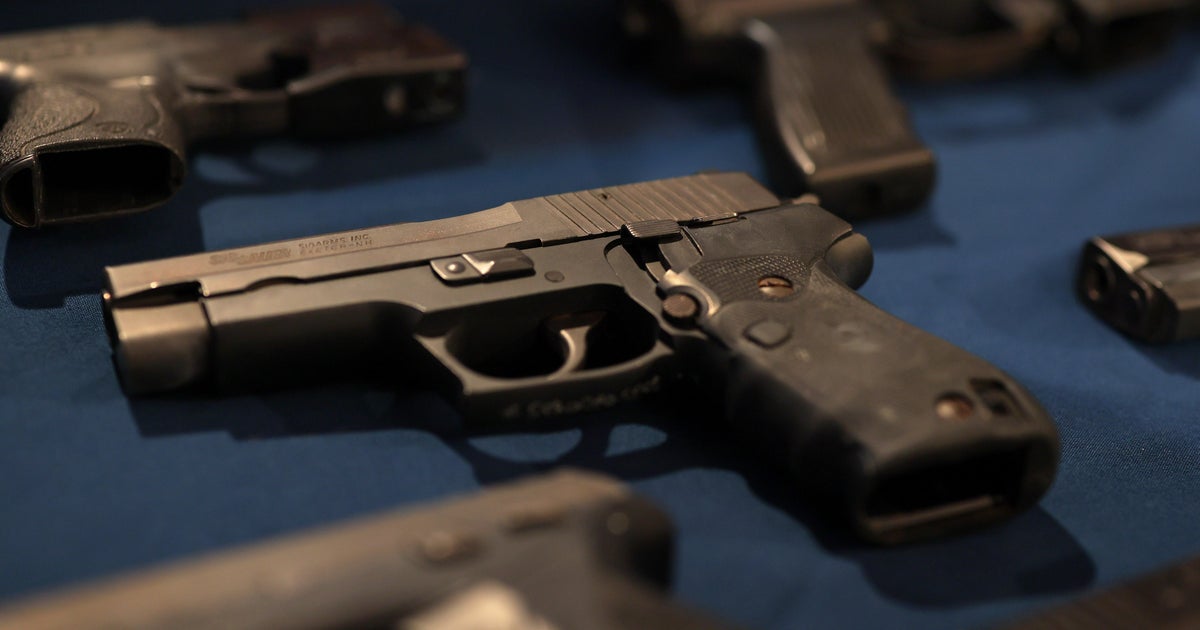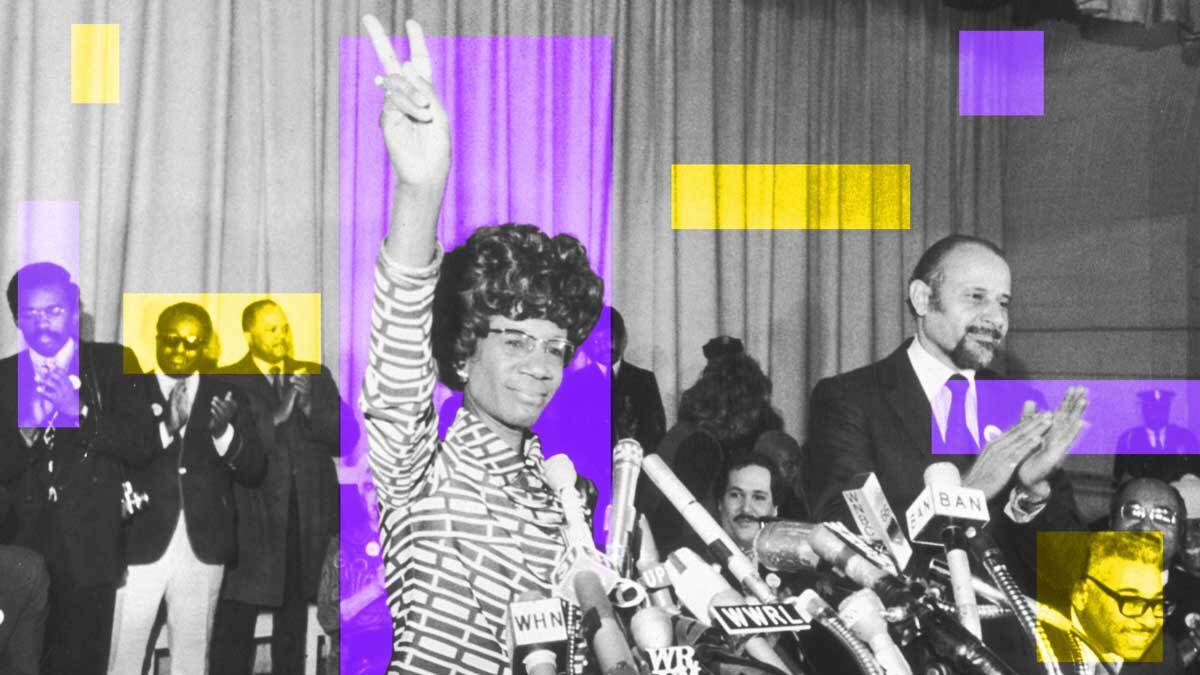Transcript: Americans affected by gun violence on "Face the Nation," Feb. 25, 2018
The debate over gun control and how to stop school shootings ramped into high gear this week, days after the shooting in Parkland, Florida, that left 17 people dead. Proponents of tighter gun laws, including many survivors of the shooting itself, have begun campaigns to pressure lawmakers and cut support for the National Rifle Association. President Trump, meanwhile, has proposed arming teachers and training them to confront would-be school shooters.
To get some perspective on the debate, we turned to those who have been directly affected by gun violence. Our panel included:
- Austin Eubanks, a survivor of the Columbine school shooting
- Nicole Hockley, mother of Dylan who killed in the Newtown school shooting, co-founder of Sandy Hook Promise
- Andy Parker, father of slain journalist Alison Parker, co-founder of the For Alison Foundation
- Michele Gay, mother of Josephine who was killed in the Newtown school shooting, co-founder of Safe and Sound Schools
- John Mina, Orlando police chief during the Pulse nightclub shooting, member of the International Association of Chiefs of Police
The following is a transcript of the interview with the panel that aired Sunday, Feb. 25, 2018, on "Face the Nation."
MARGARET BRENNAN: We want to turn now to a group of people whose lives have been impacted directly by gun violence and who have been moved to do something about it. Austin Eubanks was a 17-year-old student at Columbine High School when two of his classmates opened fire in 1999 wounding him and killing 13. He is now the Chief Operating Officer at Foundry Treatment Center and addiction recovery facility out in Colorado. Nicole Hockley's son Dylan was among the 20 children killed at Sandy Hook Elementary School in Newtown, Connecticut in December of 2012. She co-founded Sandy Hook Promise a group working to protect children from gun violence. Andy Parker's daughter Alison was a reporter for CBS affiliate WDBJ in Roanoke, Virginia when she was shot and killed during a live broadcast in 2015. And he's now an activist and he helped start For Alison an educational foundation named after his daughter. And Michele Gay lost her daughter Josephine in the Sandy Hook massacre. A former teacher she co-founded Safe and Sound Schools following her daughter's death. And joining us now is John Mina from Orlando. He is the chief of police for the Orlando Police Department a job he held back in June 2016 when a gunman entered Pulse Nightclub and killed 49 people. Nicole, I want to start with you. After Sandy Hook people said this has to be different. This was an attack on children. People now are saying that about Parkland. It feels different politically, do you think it is?
NICOLE HOCKLEY: I do- I do feel the difference because I think there's a difference between adults advocating for their children versus children advocating for themselves. And these are articulate teenagers sharing their experience and demanding that the adults listen to them. So I think the politicians need to stop their nonsense fighting and instead just kind of shut up and listen a little bit to these kids and listen to what they're demanding because this can't continue we can't keep letting our kids die and feel unsafe in their schools.
MARGARET BRENNAN: And you met with a number of these activists in Florida.
NICOLE HOCKLEY: I did meet with some of them and their energy and their drive, that energized me because you know I've been in this fight for five years they're at the start of a very long journey. But they have tools in terms of social media and stuff that I didn't really have at my fingertips. They are organizing and mobilizing at an incredibly rapid rate and and they're not listening to what other people are telling them to say they're speaking for themselves. They're being authentic. And I think that has power.
MARGARET BRENNAN: Michele do you see that student activism in the same way?
MICHELE GAY: I do. And interestingly enough in- in the school safety space when we founded Safe and Sound Schools in the spring following the tragedy, the first and probably most powerful group that we were hearing from was- was students. So we've been working with students now for five years. We just released a youth council program that came out this fall. So we're grateful that a lot of those councils were already established prior to this tragedy and that the kids have this platform to speak in their communities. But I would agree with Nicole. It is- it is different this time because because they are organized because they are speaking up and we want to hear what they have to say.
MARGARET BRENNAN: Andy, after your daughter's death you became politically active so did Alison's fiance. Where do you think that this activism should be focused. Is it at the local and state level or is it here in Washington?
ANDY PARKER: Margaret, it has to be all of the above. And we have to give law enforcement the tools that they need to prevent this kind of tragedy from happening. And one of them, ironically Marco Rubio brought it up in the town hall last week, is a gun violence restraining order. And you know what a lot of people don't know is that with all the- the alarms and the red flags and the warnings about this shooter in Florida he was never- he was never arrested for anything. So legally law enforcement can't go in and remove weapons. And what the G.V.R.O. or the gun violence restraining order they can. I hope that this changes the equation because Barbara and I testified in front of a Virginia senate committee on this very issue. The chairman of the committee looked at me and said, "We're sorry for your loss." And then they voted it down on party lines. Same thing with a- a young woman who survived the Las Vegas shooting was in tears saying, "Please ban bump stocks." They did the same thing to her. So you know at this point the Republican Party hopefully there will be a change there but they're the party of the NRA. I mean that's just the fact.
MARGARET BRENNAN: Austin, what you lived through happened in the middle of an assault weapons ban, despite it. So when you hear these activists these student activists in particular call for a ban on specifically that, does that speak to you in any way? Do you say that's misguided or how do you think this should be focused?
AUSTIN EUBANKS: Well it definitely speaks to me and I'm really inspired by the level of activism that I've seen. The problem that I have is I think that we get so laser focused on either one of two sides it's either gun control or mental health and then nothing ever gets done. So I think that we do have a problem with accessibility to these weapons but specifically I think we have a problem to accessibility to high capacity magazines. We have to bring down the number of shots that somebody can fire before reloading and I think that's exceptionally important. Beyond that we have to look at why this issue is occurring and we have to go all the way back to the way that we're educating and socializing young men. And so what I really advocate for is appointing a non-partisan group of experts who can study this issue comprehensively and in the near term we have to bring down the loss of life. And by doing that we can eliminate high capacity magazines and assault weapons
MARGARET BRENNAN: At the federal or local level?
AUSTIN EUBANKS: I believe at the federal level.
MARGARET BRENNAN: You do. Chief Mina not want to come to you. Quickly before we go to commercial break and then continue our conversation on the other side of it, but Chief it sounds like there were just so many red flags at least 23 calls to local authorities. Flags raised to the FBI in this case and Parkland. How hard is it to actually intervene as law enforcement. I mean is this a matter of just local bureaucracy run amok or is it a failure a dereliction of duty. How do people understand this?
CHIEF JOHN MINA: Well it is definitely a failure of all the systems involved. You know at the Orlando Police Department I know many of our law enforcement agencies in central Florida across the nation. There are protocols in place for when we receive social media threats for when we get some of these red flags. And I would tell you that you know we don't stop working until that threat is mitigated until we it you identify the person who made that threat. Go talk to them talk to their parents and go really hands on with them. And in many cases either arrest or commit that person for an involuntary mental examination the issue and some of the problems with that is even if we commit someone under the Baker Act for a mental evaluation they can get their evaluation and probably be released in less than 72 hours and still go in and able to buy a firearm so that- that loophole needs to be closed because many of our law enforcement throughout the country have had many success stories as far as mitigating some of these threats and seeing the red flags and working until the very end putting the person in custody or getting them evaluated and then-- and then that person is still being able to purchase a firearm.
MARGARET BRENNAN: Chief, we want to talk to you again on the other side of this break along with the rest of our panel so stay with us please. We'll be back in just a moment.
(COMMERCIAL BREAK)
MARGARET BRENNAN: We're back with our panel on gun violence I want to go to Orlando and bring in Chief Mina who was chief in that city during the Pulse Nightclub attack which did involve the shooter using a semi automatic weapon. Chief, I want to ask you this proposal to at the state level have skilled teachers be armed to you. Does that make a difference?
CHIEF JOHN MINA: Oh I don't think that's a good idea. Our teachers are already have many responsibilities. It's their job to educate our students and they do a great job of that. Our teachers aren't trained physically or mentally prepared to handle firearms in a stressful situation. Law enforcement throughout the country not only did they get through, you know, hours and months and weeks of training, but they also carry firearms every day and deal and use their firearms. And sometimes in stressful situations and for a teacher to be educating students at one second and then be responsible for responding in a high stress situation with a firearm with not enough training or mental preparation. I don't think it's a good fit. I'm definitely against that.
MARGARET BRENNAN: Michele you are a former-former teacher. What do you think about arming educators?
MICHELE GAY:I would agree completely. I- I just I understand that it's a community based decision and that will always be our position that Safe and Sound Schools. We know that different communities are made up of different people with different backgrounds and there are different circumstances. Some of our school communities are facing you know response times that that may be up to 50 minutes so I understand the need to look at all solutions put them all on the table. But when I think very practically about myself sitting in a second grade classroom on the floor criss cross applesauce with- with my students teaching reading. The last thing I would be ready for in the split second that it might happen is is having to pull out a firearm and pull it from my hip and intervene in that way and further having worked with School Resource Officers so closely for the past five years, we know the level of training that they undergo. We know the time the mindset as the other guest is talking about just just the familiarity of having that firearm with you and all of that working consideration that goes into that. That's not something I want to put on a teacher who is already very overburdened sadly with a lot of tremendous responsibilities.
MARGARET BRENNAN: Austin, Colorado has explored this. What do you think?
AUSTIN EUBANKS: So I'm opposed to it as well but I do believe that we have to strengthen schools by way of architecture, metal detectors or perhaps additional security personnel. But I do think that those two functions have to be completely separate. Educators have to focus on education and security officials need to focus on security.
MARGARET BRENNAN: Nicole, with Sandy Hook Promise you've been looking at ways to harden the response, at least. What are you looking at proposing?
NICOLE HOCKLEY: Well I agree that we need to focus on how do we handle imminent danger such as school security and the infrastructure of our schools. But I do believe that the shift needs to focus more to prevention. How do we help identify people that are at risk of potentially hurting themselves or others. That's what we offer from Sandy Hook Promise and about seven thousand schools at the moment with our free programs and our free anonymous reporting system. This is a way for teachers, educators, students and parents to say this is what I'm recognizing and this is what I'm seeing and then have a system to report it and to be honest in terms of arming teachers it would be better to arm them with this knowledge and the ability to do that to prevent violence before it happens and if there's federal funding available for these programs versus arming teachers, I would put it towards the programs or you know giving teachers more what they need in terms of supplies or books or arming them with more school counselors as well to help these kids.
MARGARET BRENNAN: Andy, I'm going to ask you you personally faced some backlash for your activism and something we're seeing now with these students in Florida. Where does that come from?
ANDY PARKER: There are a legion of hoaxers that descend on they descended on me like locusts. They've done the same thing with the kids in Florida. They call it crisis actors. They say Alison is-- has had plastic surgery and is living in Israel someplace. You know, the level of cruelty is just unimaginable. But you know it's fuelled if you do all you have to do is look up the street on Pennsylvania Avenue. It's enabled by a president that has unhinged tweets every single day. Arming teachers and so he's enabling this kind-- he's helping create the sort of atmosphere that that brings upon these people.
MARGARET BRENNAN: What did you think of the president's listening session this week? You were there in the choir.
ANDY PARKER: It was. It was pathetic, frankly. And then when he comes out with again this this this crazy notion of arming teachers. Teachers are going to quit before they carry a firearm in class. It was-- when you have to hold a note card that says I hear you. I mean come on. That's unimpressive to say the least.
MARGARET BRENNAN: Well talking points are something many walk into a room with to get through that, but I appreciate your passion all of you for coming here to share your personal stories. Thank you. We want all of you to come to Washington today for this conversation. We really appreciate all of you being here and all of you watching, we'll be back.



